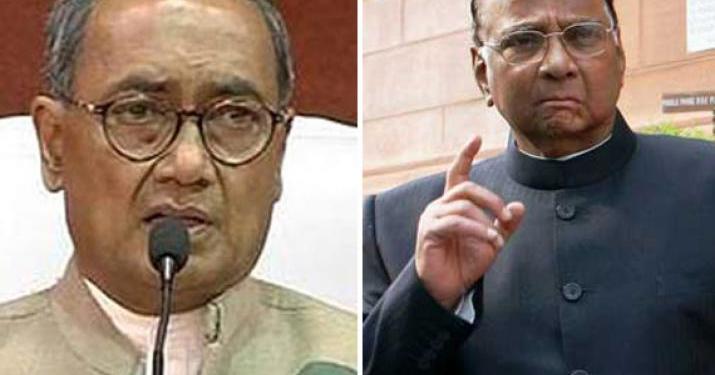Congress and other opposition parties have started to create havoc against the order of the government which permits 10 investigation agencies to access ‘any computer’. In fact, it was the UPA Government which brought the Information Technology (Procedure and Safeguards for Interception, Monitoring, and Decryption of Information) Rule in 2009. The then UPA Government made it compulsory that only authorized agencies could carry out surveillance; it did not select the authorized agencies which left enough scope for unlawful and illegal surveillance.
There was an unprecedented level of surveillance on political rivals and allies during the UPA era. The UPA government not only tapped the phones of its political rivals but also of its allies including, allegedly, its own Finance Minister Pranab Mukherjee. It was just another tool for the grand old party to witch hunt their political rivals. The list also includes big names to the likes of Digvijay Singh, Prakash Karat, Nitish Kumar and Sharad Pawar.
It was claimed at the time of UPA government; Digvijay Singh’s phone was tapped, while he was in a conversation on his cell phone with a Congress leader from Punjab. The two were discussing possible candidates for 2007 chapter of the Congress Working Committee elections. On this Digvijay Singh said, “I think it is illegal and unethical.” In another instance, the then Union agriculture minister, Sharad Pawar’s phone was tapped while he was in a discussion with former IPL commissioner and fugitive Lalit Modi. The taped conversations allegedly threw up inside details of the deals that were struck in the bidding process for the various teams.
Another case is related to former President of India Pranab Mukherjee, the current MP and leader of the BJP Subramanian Swamy in 2011, accused the then Home Minister P. Chidambaram of planting surveillance devices in the room of the then Finance Minister Pranab Mukherjee on the instructions of former Congress President Sonia Gandhi.
But regarding the current decision of the NDA government, the opposition is calling it an infringement in the privacy of a common citizen. However, this is not the first time when the opposition parties are doing so. They created the same havoc around the privacy issue on Aadhar and called it unconstitutional. But the Supreme Court of India cleared biometric identification and said that there is nothing unconstitutional in it.
The surveillance will help to curb the illegal and unlawful activities by terrorist and criminal organizations. There have been many cases like Nira Radia tapes and Essar leaks where it was found that private organizations were snooping in e-mails, office memos, telephone conversations of top government officials including ministers and private citizens. The empowerment of government agencies will ensure that any interception, monitoring or decryption of any information through any computer resource is done as per the due process of law. It will help the agencies to look after any illegal activity by private organizations and will help in quick clamp down of any such attempt. The surveillance for the purpose of national security is justified and governments across the world do this to protect their citizens against the criminal elements of the society.


























